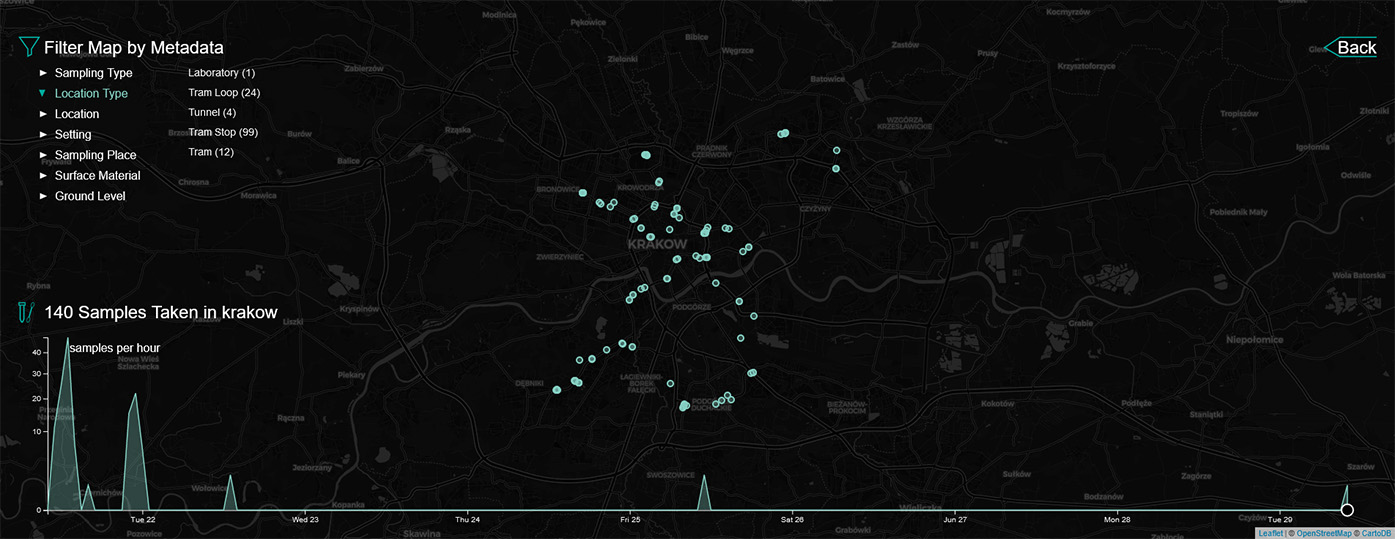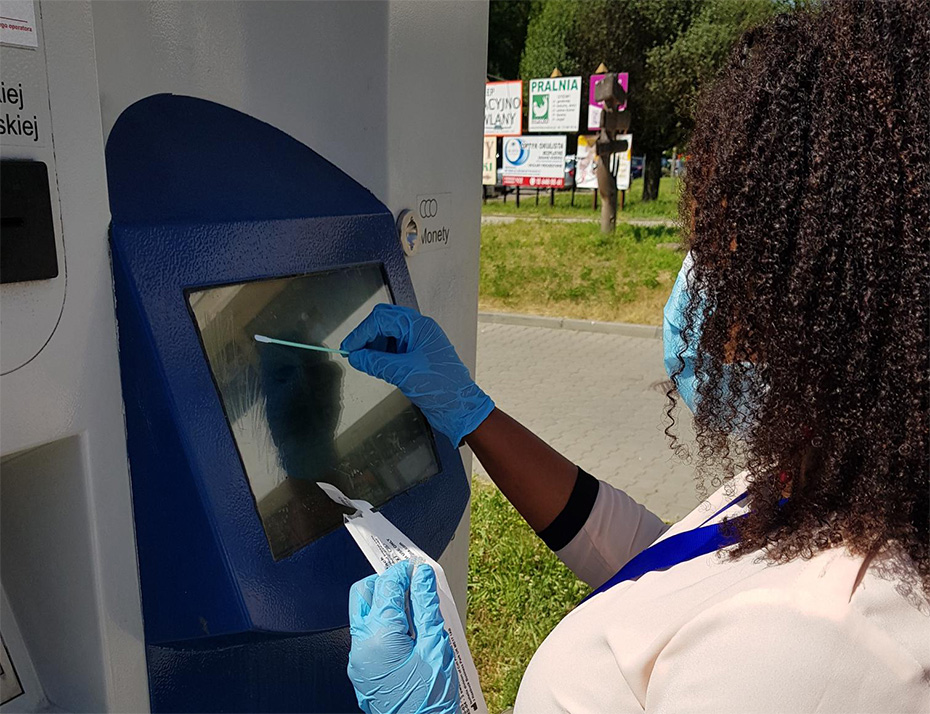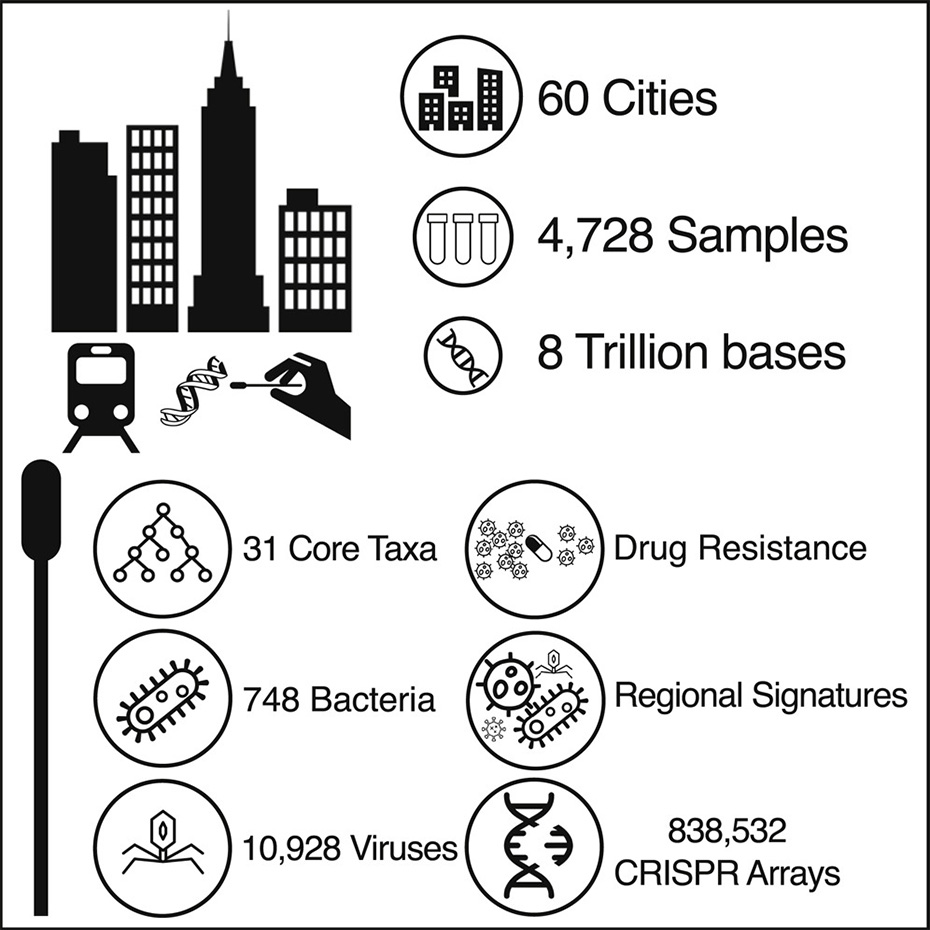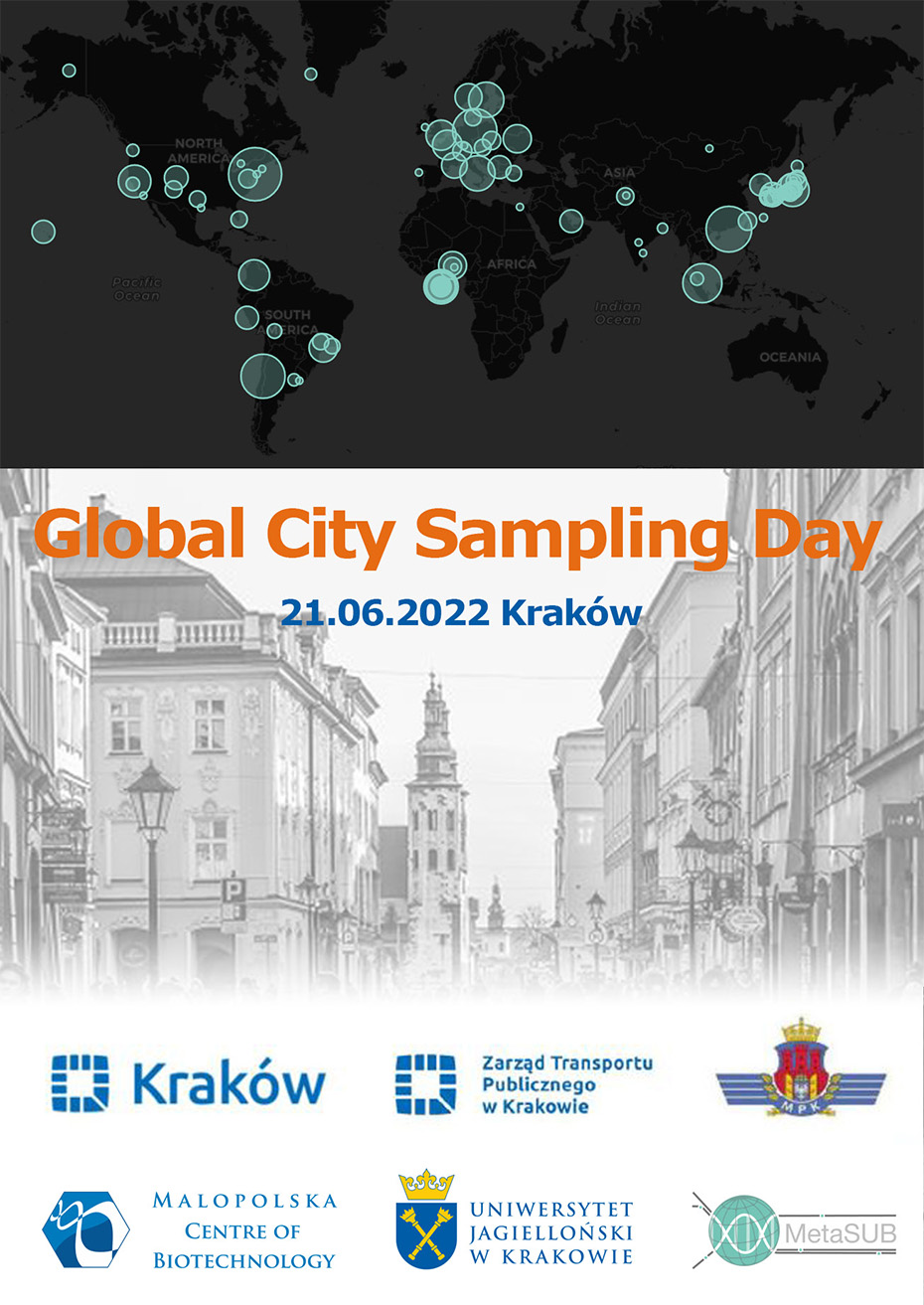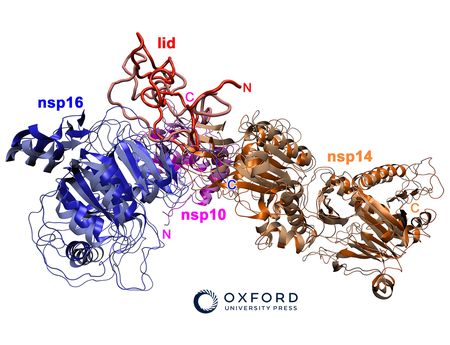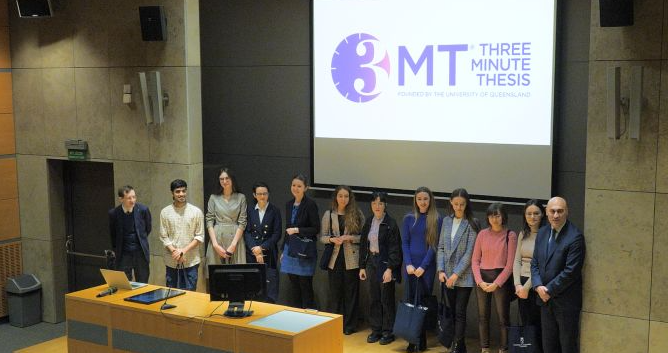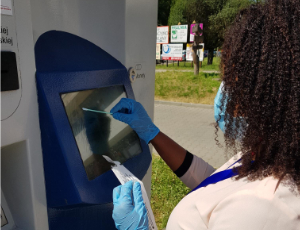
The next edition of the annual action of collecting microbiological samples in cities around the world Global City Sampling Day (gCSD) will take place thanks to the scientists from Malopolska Centre of Biotechnology of the Jagiellonian University, also in Krakow, next Tuesday, 21.06.
Global City Sampling Day
Global City Sampling Day is a synchronized worldwide action of the international consortium MetaSUB (The Metagenomics and Metadesign of the Subways and Urban Biomes) based in New York, which takes place every year on 21 June. In public transport around the world, MetaSUB members, as well as trained volunteers, collect swabs and air samples from surfaces on subways, streetcars, buses, airports, and other public places. The collected material will be submitted to the New York City gCSD database maintained by Professor Christopher Mason, founder of the MetaSUB Consortium. The samples will then be sequenced and analyzed to develop a genetic and epigenetic map identifying the species of microorganisms inhabiting each participating city, called the microbiome.
Map of sampling locations - 2021 gCSD edition Kraków.
MCB JU and MetaSUB Europe
The initiator and coordinator of the Krakow edition of the campaign is Paweł Łabaj, Ph.D., leader of the Bioinformatics Research Group at the Malopolska Centre for Biotechnology at the Jagiellonian University, and co-founder of the MetaSUB Europe association.
According to the MetaSUB Consortium, most of the world's population (about 54% of the population) now lives in cities. The Consortium builds molecular profiles of metropolises around the world, focusing on public transport systems, which are spaces of intensified human interaction. The dynamics of microbiomes and metagenomes on shared surfaces; handles, handrails, seats, or ticket machines, and interactions with these surfaces can affect the health of individuals and the health of entire urban ecosystems and populations. The whole project is potentially significant not only for public transport safety but more importantly for the sustainability, safety, security, and future planning of cities.
Volunteer collecting a smear from a Krakow ticket machine during global City Sampling Day 2021.
MetaSUB Cell Press Publication
The MetaSub publication "A global metagenomic map of urban microbiomes and antimicrobial resistance" has been awarded among the best publications of the prestigious scientific publication Cell Press for 2021. The article, co-authored by Paweł Łabaj, Ph.D., from MCB UJ, presents the results of the analysis of nearly five thousand samples from 60 cities around the world from the first years of the consortium.
Graphic abstract of gCSD's. Source CellPress.
gCSD 2022 with support of local governments and Municipality of Krakow.
The project in Krakow is taking place thanks to active cooperation between representatives of the local governments and municipal transport companies: Municipality of Kraków - Entrepreneurship and Innovation Department, ZTP Kraków, and MPK S.A. in Krakow.
source: metasub.org


